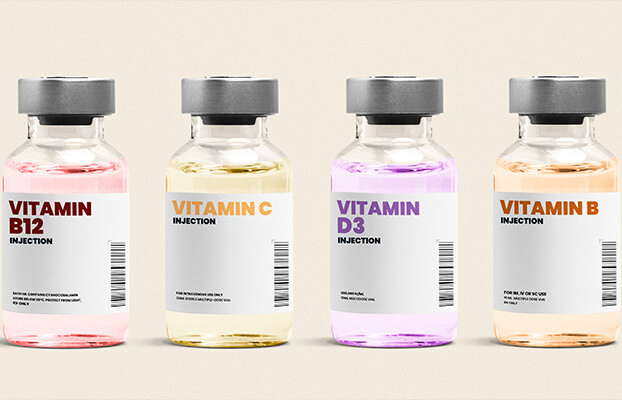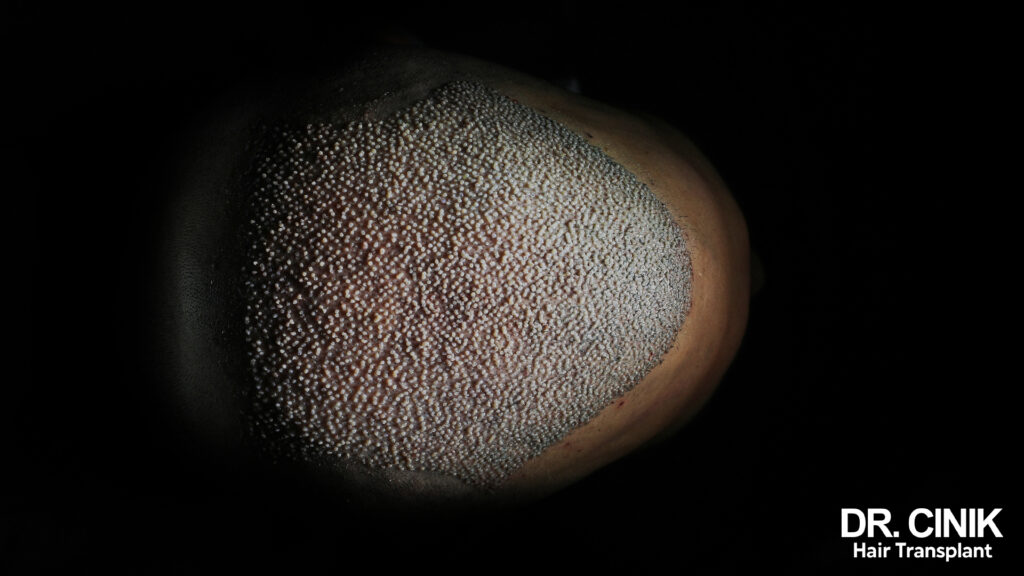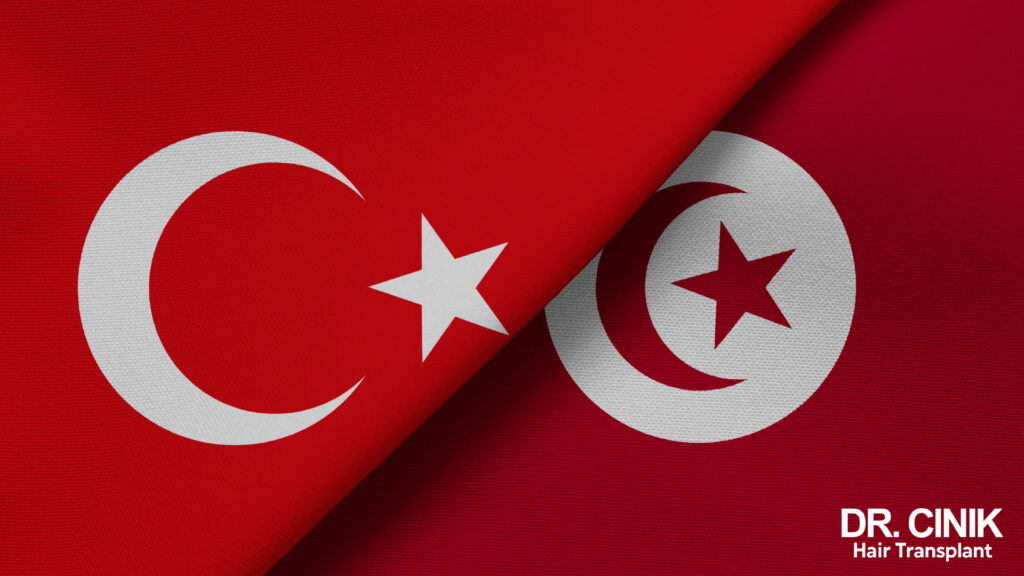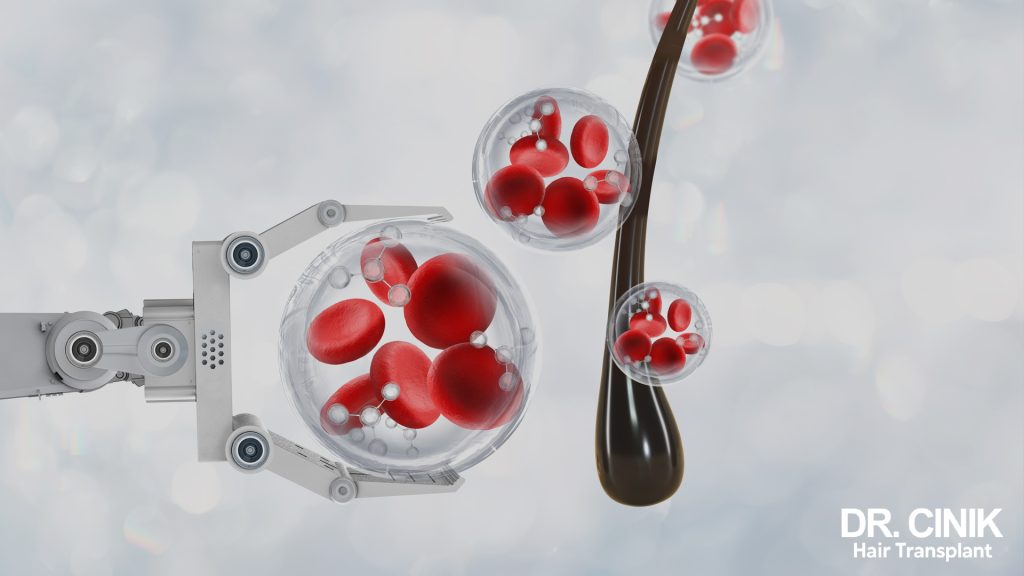Hair Loss Due To Vitamin Deficiency

Sommaire
A balanced diet rich in vitamins and minerals is critical for your overall well-being. It helps you maintain physical fitness, boosts your immune system, improves your cognitive functioning, and even affects your mental health. So, it’s not surprising that an imbalanced diet can have quite an effect on your body as well.
Hair thinning is one of the most common side-effects of vitamin deficiency. Over 35 million men and 21 million women worldwide suffer from hair loss, and for some of them, a simple increase in vitamin intake could alleviate this problem.
Let’s take a closer look at the connection between vitamins and hair growth and see how hair loss due to vitamin deficiency occurs.
A Good Diet Is Essential For Normal Hair Growth
Whether you’ll have a full head of hair or experience bald patches and hair thinning roots in a variety of different factors:
- Genetics
- Stress levels
- Age
- Hormones
- Seasonal changes
- Climate
- Trauma
- Overall health
- Diet
And diet might just be the most significant contributor to hair health.
Hair is made up of dead cells, and it doesn’t play a critical role in your survival (at least not in the way that your vital organs or muscles do). So, when you have an imbalanced diet and don’t get your necessary levels of nutrients and vitamins, your hair (and nails) will usually be the first ones to suffer since your body will direct all the available nutrients to the critical areas.
But, if you do have a healthy diet, all the excess nutrients will be free to go to your hair, among other places. And keep in mind, while hair is made up of dead cells and doesn’t need “nutrition,” hair follicles are very much living and in need of “food.”
Healthy hair follicles that receive vitamins and minerals will produce fuller, healthier-looking hairs and allow those hairs to grow.
Vitamin Deficiencies That Can Lead To Hair Loss
Of course, not all vitamins are equally crucial for hair growth. Hair follicles use some vitamins more than others, so increasing some vitamin intake might not give you the desired results.
Two vitamins that are the most critical for hair growth and that could lead to hair loss if you have a deficiency are vitamin B12 and vitamin D.
B12 plays a vital role in your well-being, helping to increase red blood cell production, which is essential for your hair follicles’ health. B12 deficiency can lead to hair loss and the development of conditions such as anemia.
Since the body cannot produce vitamin B12, it’s essential to get plenty of it in your diet. Foods such as meat, poultry, fish, and dairy are rich in vitamin B12, but plants do not.
Vitamin D stimulates hair follicles and promotes hair growth, so vitamin D deficiency often causes increased hair loss, even contributing to alopecia development.
You’ll typically get your required dose of vitamin D through sun exposure and eating foods such as fatty fish, red meat, egg yolks, and the like.
Fighting Hair Loss With Increased Vitamin Intake
If you’re suffering from hair loss, a blood test can show whether you might have vitamin deficiencies or other health issues that could be causing it. Increasing vitamin intake could help you restore hair growth, but only to an extent.
If you have severe hair loss, using vitamin supplements isn’t likely to produce the desired effects. You should still improve your diet and increase your vitamin intake, but the only permanent solution to severe hair loss is transplant surgery.
Best Vitamins To Fight Hair Loss
An unhealthy diet and crippled vitamin intake can cause or accelerate hair loss. Vitamin and other supplements’ intake can be a sufficient remedy for such hair loss types. However, the best vitamins and minerals to fight hair loss are:
- Vitamin B family ( especially B12 and B7)
- Vitamin D
- Iron
- Vitamin C
- Zinc
Hair Transplants As The Only Permanent Solution
Hair transplants at clinics such as Dr. Emrah Cinik hair hospital are the only permanent hair loss solution out there. Healthy hair follicles are extracted from less visible places and inserted into problematic areas to produce natural, long-lasting results.
Dr. Emrah Cinik, the world-class experienced surgeon, relies on cutting-edge tools and technology to deliver a virtually pain-free experience. Within a few months after the surgery, you should enjoy a full head of luscious hair with no signs of previous problems and no scarring.
Vitamins And Supplements After A Hair Transplant
Dr. Cinik hair hospital provides a comprehensive after-care package after the surgery for all patients. This ensures patients’ hair will get enough to survive and evolve and increase the chance for success. This package includes:
- Multi-Vitamin Complex Tablet
- Biotin Tablet
- SAW PALMETTO
All provided packages come with high-quality, as-organic-as-possible products.
The Bottom Line
Vitamin deficiency can lead to several problems, including hair loss. While increasing vitamin intake is critical for your overall health, it might not help to restore your natural hair appearance if hair loss is too severe. In this instance, hair transplants might be the only solution.
 en
en



